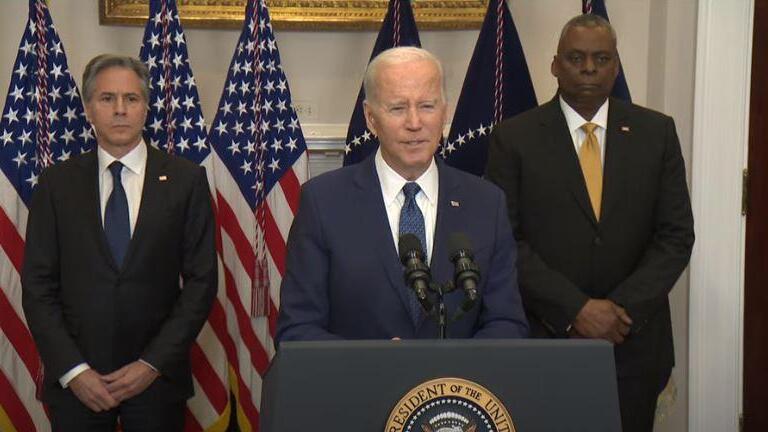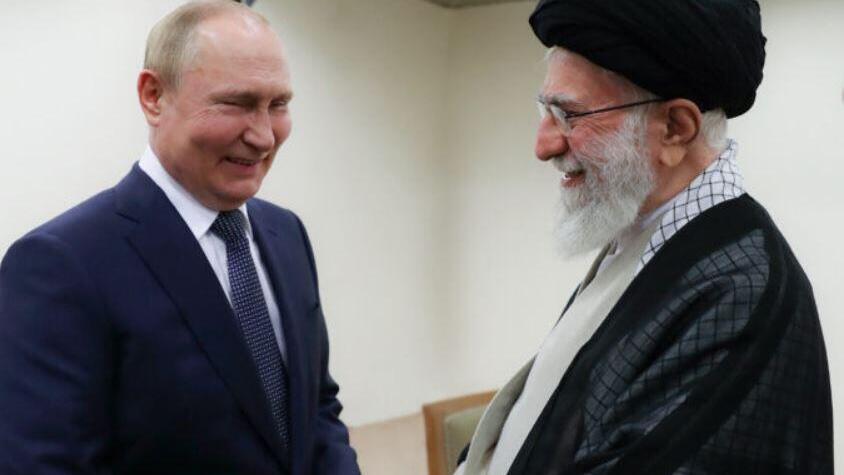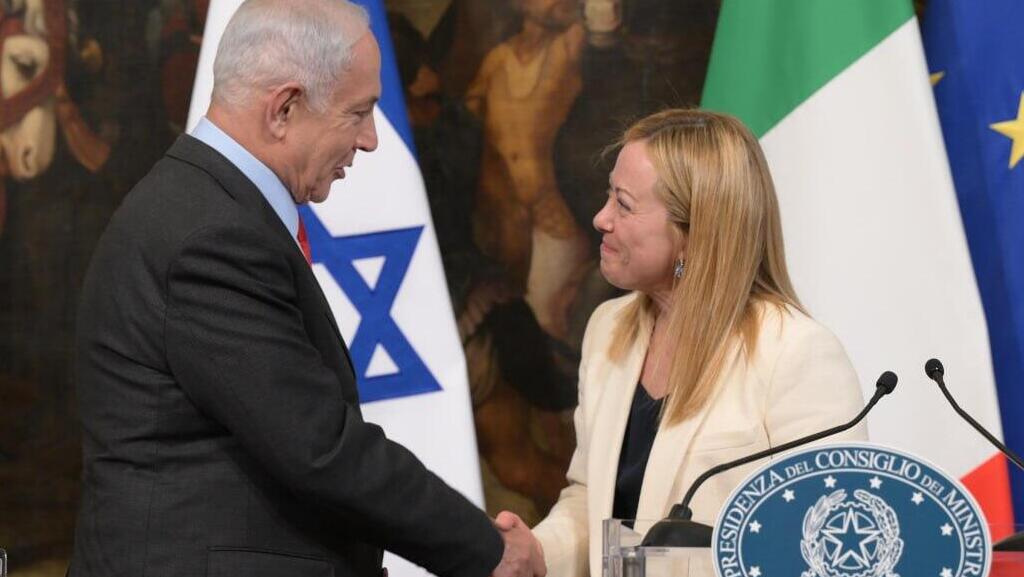The Israeli premier has spent the past month galloping across European capitals. It began with Paris last month, Rome a few days ago, Berlin this weekend and London in the very near future.
According to security officials, the purpose of these visits is to galvanize as much support as possible to further isolate Iran from the international community via renewed sanctions and a NATO-fueled weapons embargo. All in the hope of significantly stalling Iranian efforts to secure nuclear capabilities and to curtail their regional aggression via proxy efforts in Syria and Lebanon.
Netanyahu has apparently been attempting to convey to his European counterparts that weapons shipments coming out of the Islamic Republic are mostly meant for Moscow, to assist Russian efforts in their less-than-stellar war campaign against Ukraine. That in itself, Netanyahu says, compromises all of Europe.
He has stressed to them that the technological and military cooperation between Russia and Iran is designed, among other things, to improve the accuracy and range of Iranian made payload-carrying drones and anti-aircraft missiles to target the Ukrainians. In exchange, Iran gets a fresh supply of Russian fighter jets.
All of that will not only serve to prolong the war in Ukraine, but make it easier for the Iranians to endanger shipping routes from the Persian Gulf to Europe, thus compromising Israeli capability to effectively defend the homeland.
Netnayahu is welcomed in Rome by Prime Minister Meloni
(Footage: Itay Beit-On)
In comes Netanyahu's wish for a weapons embargo on Iran, set by the UN Security Council, a move that could hamper Iranian efforts to secure the requisite military capabilities to mount such a threat, or further develop their nuclear aspirations.
Such an embargo had already been put in place 13 years ago, but was since removed as part of the Obama administration's efforts to secure a deal to stop the Islamic Republic from developing the nuclear weapon.
In that same pact, known as Joint Comprehensive Plan of Action, lies a provision known as "snap back," a mechanism through which all previously-existing sanctions and embargos can be reinstated (provided Iran does not meet its end of the deal).
After U.S. President Donald Trump decided to withdraw from the pact, Iran followed suit, meaning the snap back clause can be activated, allowing all previous restrictions on the Islamic Republic to be reinstalled.
And, even if Russia and China veto the move in the Security Council, the U.S. along with its European allies could implement said restrictions independently, thus rendering any Russian or Chinese veto irrelevant.
Netanyahu meets French President Macron in Paris
(Footage: Reuters)
After finding out that Iran has produced a tiny amount of uranium enriched to 84%, Netanyahu's efforts received the kind of boost of legitimacy he was hoping for. Even if the enrichment level does not surpass 90%, it's still enough to be classified as fissile material - enough to arm a nuclear warhead.
If Israel and the U.S. were on the best of terms, President Joe Biden could have invited Netanyahu to the White House for a serious discussion on how to move forward as a united front vis-à-vis Iran.
Alas, these are not the best terms. Amid West Bank raids and coalition partners openly flaunting the idea of leveling Palestinian villages, POTUS is in no hurry to speak to the Israeli premier or visit Israel.
Biden did send his National Security Advisor Jake Sullivan, Chairman of the Joint Chiefs of Staff General Mark Milley and Defense Secretary Lloyd Austin to speak with Netanyahu and Defense Minister Yoav Gallant. But, none of those individuals, as respected as they are, are in a position to make the sort of decisions Netanyahu is interested in.
3 View gallery


President Biden announcing military package for Ukraine, along with Secretary of State Blinken (left) and Secretary of Defense Lloyd Austin
(Photo: Youtube screenshot)
And if that wasn't enough, the cold shoulder from the Americans is not the only impediment Netanyahu has to contend with. To the east lies another, in the form of Russian President Vladimir Putin, whose ties with Iran are blooming at the moment.
The Russians don't want to hear anything about sanctions or embargos on Iran, seeing that it could throw sand in the gears of the Russian-Iranian mutually beneficial arrangements. Netanyahu, meanwhile, has no desire to be on Putin's bad side.
Russian retaliation against Israel could come across in the form of banning the Israeli aviation from utilizing the Russian airspace, which could change the nature of Israeli commercial flights to southeast Asia and the Orient. They could also scramble communication frequencies and launch cyberattacks against Israel.
Netanyahu wants to have his cake and eat it too. He desperately wants to hamper Iranian efforts, but his fingerprints cannot be anywhere near it, so he's appealing to the Europeans, hoping they'll do the heavy lifting for him.
3 View gallery


A picture of the meeting of Russian President Vladimir Putin with Ayatollah Khamenei, the leader of the Islamic Revolution of Iran
(Creative Commons BY)
To that effect, French President Emmanuel Macron and German Chancellor Olaf Scholz can be relied upon to be discreet when it comes to Netanyahu's pleas with regards to Iran. That means that the official reason for his European trips - maintaining good relationships - is the perfect cover and should not alarm the Russians.
Besides, Israeli pleas to activate the snap back clause were initiated by then-Prime Minister Yair Lapid, and Netanyahu's embrace of these efforts provides him and wife a great excuse to spend some weekends in Europe, away from agitated protesters who are lighting up every part of the country at the moment.
Having said that, no significant breakthroughs have been registered as of yet. No European leader has signaled real willingness to reinstall the sanctions, or make any independent moves on the issue.
That's not enough. Netanyahu wants more, and one can be rest assured he will persist with the proper efforts for the foreseeable future.




